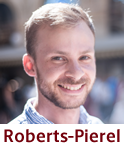Award Recipients 2019
Doug Adams, Francie Cashman, and Justin Roberts-PierelDouglas Q. Adams is a Ph.D. student in the Department of Physics and Astronomy at the University of South Carolina. Prior to this, he received a B.S. in Mathematics at the University of Michigan, worked as a technology analyst for the Merchant Bank at Goldman Sachs in New York City, and held Research Assistant positions at both Princeton University and Stockholm University in Sweden. Here at USC Doug’s research focuses on using data from the Cryogenic Underground Observatory for Rare Events (CUORE) experiment operating in Assergi, Italy, to probe various particle decay chains. Francie Cashman is a Ph.D. candidate in the Department of Physics and Astronomy at the University of South Carolina. She received her B.S. in Physics with a minor in Astronomy from the College of Charleston. Before beginning her graduate education, Francie was a certified public high school Physics teacher in the Charleston County School District as well as an Adjunct Instructor at the College of Charleston's Department of Physics and Astronomy. Her research area is in extragalactic astrophysics, focusing on using quasar absorption line spectroscopy to study the chemical properties and evolution of distant galaxies. Justin R. Pierel is a Ph.D. candidate in the Department of Physics and Astronomy at the University of South Carolina. Prior to USC, Justin worked as a research assistant for the Cassini Composite Infrared Spectrometer team at NASA Goddard Space Flight Center, and as a Geospatial Analyst with NASA’s DEVELOP program in applied sciences. He obtained his B.A. from Bowdoin College in 2014, double-majoring in both Mathematics and German with a minor in Economics. Currently, Justin’s research focuses on precision cosmology using gravitationally lensed supernovae and developing software in preparation for the next generation of space telescopes. Project Description: The team of Doug, Francie, and Justin are developing a Python Programming mini-course for science, technology, engineering, and mathematics (STEM) fields. Many graduate students and faculty in STEM fields are required to program and perform analytical computations with little to no formal training, leading to inefficient collaboration and limited statistical understanding of their results. The goal for this new mini-course is to address these issues by developing comprehensive course materials using an active-learning approach and provide participants with the tools and materials applicable to STEM coursework and research. Included in the course will be open source Python coding tools, and participants will learn how to access relevant databases, apply models to real data, and manipulate their data to answer scientific questions. The course was offered this summer for zero credit as a proof of concept, and the Python mini-course is expected to start being offered for credit starting in 2020. |
|
Zackery ButlerZackery Butler is a Ph.D. Candidate in the Department of Sociology. His dissertation research is focused on the interaction between international/national public policy and early marriage/fertility around the world. He is currently working with Dr. Caroline Hartnett on a project describing the recent decline in the fertility intentions of American men. He also serves as graduate student editor for Historical Methods: A Journal of Quantitative and Interdisciplinary History. Zackery received his B.A. in Sociology from the University of North Carolina at Pembroke and his M.A. in Sociology from Fayetteville State University. Currently he teaches Introduction to Sociology, Global Population Issues, and Social Demography. Project Description: Zackery’s project will create new resources for SOCY 315: Global Population Issues. In this course, students are introduced to population theories, population history, and current population issues across global, regional, and local perspectives, with an emphasis on critical thinking and an understanding of the difference between anecdotal and empirical information. The goal of the project is to develop a cooperative learning assessment using a technique known as “jigsaw”. The technique encourages students to communicate with other students and cooperate to achieve success, leading to an interactive peer-learning environment in which students value each other as contributors to their common task. The projects developed in the jigsaw format will require them to locate proper sources, interpret current and topical sociological data, and answer complex questions in multimodal formats. This resource will be developed via Blackboard Sandbox in a generalized version flexible enough to translate across disciplines and allow for a variety of assessment styles. |
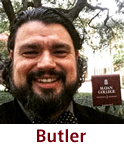 |
Elizabeth ChurchyaElizabeth Churchya is a doctoral candidate in the Music Department in piano performance. Originally from Virginia Beach, VA, Elizabeth received her B.M. in piano performance from Christopher Newport University. She has received both the Graduate Performer’s Certificate and Master of Music degree in piano performance from the University of South Carolina. As a part of her ongoing doctoral degree, she studies music history and music theory, and has research interests in film music. As an instructor, she aims to help strengthen students’ skills with clear expectations and manageable goals and inspire students with her passion for music. Project Description: Elizabeth’s grant project will develop an entirely web-based Introduction to Music course (MUSC 110). Introduction to Music is a popular course for satisfying the Aesthetic and Interpretive Understanding (AIU) credit for the Carolina Core curriculum. This course develops students’ language for describing and discussing musical elements and style, strengthens critical listening skills, and provides a historical survey of major stylistic periods and practitioners of Western music. The new asynchronous version will be designed as an accelerated online course to be offered in the Winter session beginning in 2020. The goal for creating this new online version is to provide students with more flexible and convenient options for satisfying degree requirements, concomitantly meeting increasing demand for online courses while retaining the integrity and quality of the current Introduction to Music curriculum. The syllabus and modular course schedule developed for online implementation will be a lasting resource for future instructors teaching the web-based version. |
 |
Xiao HuangXiao Huang is a third-year PhD candidate from Department of Geography, USC. He received his master's degree in Geographic Information Science and Technology from Georgia Institute of Technology in 2016. His current research study focuses on the integration of remote sensing and social sensing for rapid flood mapping, for which he received a 2019 SPARC Graduate Research Grant. Xiao was named as a 2019 Breakthrough Graduate Scholar by the Office of the Vice President for Research. Project Description: In the fall 2019, Xiao will be teaching GEOG 105: The Digital Earth. Current instructional materials mainly focus on lecturing and in-class labs with fixed topics and straightforward instructions, with experimental and field-based learning largely neglected. Xiao’s project will renovate the course by filling the gap between existing course materials and current, rapidly developing research frontiers in “Digital Earth” knowledge and data collection. Xiao plans to develop a new course workflow incorporating more data-driven methods, including field-based data collection, analysis, and presentation activities. |
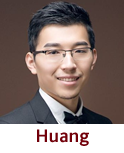 |
Anne Shelley HucksShelley is a master’s student in the Biological Sciences department, where she researches the expression of genes regulated by tumor suppressor protein p53. She received her bachelor’s degree from the Arnold School of Public Health at USC and is interested in combining public health and biology to bring about changes in health outcomes and policy. Shelley is getting married in October and graduating in December; she will then be taking a long honeymoon and, once she returns, continuing to conduct research while learning new skills and applying to Ph.D. programs. Project Description: Shelley will be using her grant funds to incorporate the Western Blot (WB) analytical technique of protein separation in the BIOL 302L Cell and Molecular Biology lab curriculum. The WB technique is commonly used in research to separate and identify proteins. Currently the course only includes the more restricted technique of gelatin zymography. Project funds will be used to purchase WB materials, ensure continuity and sustainability of the methodology in the lab classes, and support the development of a detailed protocol to train future teaching assistants in usage of the WB in lab. Shelley believes that students’ learning of this common technique will assist them in carrying out their own independent research projects in this and future courses and become more marketable and successful in any career path they choose. |
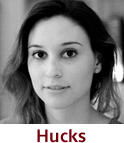 |
Robin JamesRobin James is a Ph.D. student and Graduate Research/Teaching Assistant in the Department of Mechanical Engineering. He is currently working under the guidance of Dr. Victor Giurgiutiu in the Laboratory of Active Materials and Smart Structures (LAMSS). Prior to joining the University of South Carolina, he completed his Master's in Aerospace Engineering from Pennsylvania State University with a minor in Computational Science and his Bachelor's in Aerospace Engineering from Karunya University, India. His current area of research is in the field of non-destructive evaluation and structural health monitoring of aerospace structures. Robin is trying to understand electromagnetic and ultrasonic methods for damage detection in composite structures. His teaching interests lie in the area of technology innovation for engineering education. Project Description: In many mechanical engineering laboratory courses, traditional and classical experiments are still being taught in the laboratory without emphasizing their real-time applications. Engineering teaching methods, however, should reflect technological advancements so that students can understand the applications of classical theories. For his project, Robin will be designing a series of mechanical engineering lab activities for EMCH 362: Mechanical Engineering Lab II, incorporating techniques such as visualization using fiber optic measurements, immersive learning using virtual reality, and introduction of technical writing. The activities developed through his project will encompass both hands-on and virtual experiments and involve collaboration between different engineering departments (such as computer engineering and mechanical engineering). The implementation method and template will be extended to other experimental courses within the College of Engineering. |
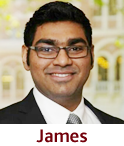 |
Christopher KrauseChristopher is currently pursuing a Ph.D. in geography with an emphasis on geography education. His dissertation research will examine the classroom practices used by introductory geographic information systems (GIS) professors and relate these to student outcomes. Before coming to USC, Christopher obtained his B.S. at Emporia State University, dual-majoring in science education and earth science, where his current interests in geography and GIS blossomed. He completed a master’s degree in geography from the University of Missouri where his thesis examined the spatial inequity in the access of poor, minority communities to institutions of higher education. Christopher has experience teaching introductory-level geography courses and upper-level GIS courses, and after graduating he hopes to find a faculty position at a teaching-oriented university. Project Description: Christopher’s project will be developing a new assessment strategy for GEOG 103: Introduction to Geography. GEOG 103 is a large enrollment course that has historically been assessed primarily through traditional multiple-choice and true-false style exams. Teaching this course in the fall of 2019 with fewer students will allow him the opportunity for innovation in the assessments used, via incorporation of a series of debates over controversial issues. These debate assessments will include topical research, debate-style argumentation and rebuttal, and critical reflective journal writing. Additionally, instructor tools such as argument design and rubrics will be constructed to be transferable to other courses. Christopher believes that students’ application of geographic skills and content knowledge to pertinent real-life issues through debate demonstrates a more authentic comprehension than merely selecting the correct answer on a multiple-choice exam. |
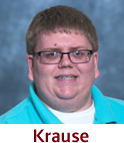 |
Brendan Mooney and Daria SmirnovaA Ph.D. candidate in Comparative Literature, Brendan Mooney is interested in the history of science in Russia, exploring in his dissertation, “Between Holy Russia and a Monkey: The Cultural Reception of Darwin’s Theory in Late 19th-Century Russia” under the direction of Dr. Judith Kalb. He received his B.A. in French and Russian and an M.A. in Comparative Literature from the University of South Carolina, and a second M.A. from Middlebury College, written entirely in Russian. During his time at USC, Brendan has been an instructor for a range of courses both online and face-to-face, including the Russian Language from beginning to advanced and Comparative Literature. He will be joining the Russian faculty at Miami University in the fall of 2019, continuing with his teaching interests in Russian history, Russian literature, and Russian language. Daria Smirnova is a M.A. student in Comparative Literature under the guidance of Dr. Judith Kalb. Her thesis research explores the work of poet, essayist, and Literature Nobel Laureate Iosif (Joseph) Brodsky. She completed a B.A. in Theology at Saint-Petersburg Christian University as well as a B.A. in English at LCC International University in Lithuania. Daria has taught numerous courses both online and face-to-face in Russian language. Project Description: Brendan and Daria will be developing pronunciation activities for RUSS 319L: 19th-Century Russian Literature (in Russian) and building a phonetics component directly into the course materials to more explicitly hone students’ speaking abilities. The primary goal of creating these materials is to make the Russian texts used in the course more accessible to students. Phonetics is an aspect of the Russian language that is rarely taught in universities and is therefore left to students to figure out on their own, with every word in Russian having a single stress that students must learn in order to pronounce each word correctly. The phonetically edited materials will remove the burden of looking up each word’s stress, helping students improve their pronunciation and intonation and focusing instead on the text content and discussion. The grant will enable the team to develop the materials over the summer in time to use them during the Fall 2019 semester, and eventually develop similar materials for the RUSS 320L 20th-Century counterpart course. The format of the resources can provide other language courses with a model as to how to integrate phonetics material into a content course. |
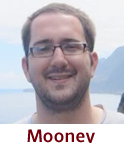 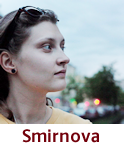 |
Clint SaidyClint Saidy is a third-year Ph.D. student in Mechanical Engineering. Originally from Lebanon, he completed his Bachelor of Engineering in Industrial Engineering at the Lebanese American University (LAU) and his Master of Science in Aerospace Engineering at USC. He currently works at the McNair Center for Aerospace Innovation and Research. Clint’s main research interests include digital transformation, predictive maintenance, and composites. Last year, Clint served as the Graduate Student Association’s (GSA) Graduate Council Representative, and prior to that he was the GSA President. Clint is very enthusiastic about teaching; over the past year he has been a teaching assistant for many courses at both LAU and USC, and in Fall 2018 he had the opportunity to teach his own course (manufacturing processes). Project Description: Clint will be the graduate teaching assistant in Fall 2019 for the new course, EMCH 380: Project Management for Engineers, with Dr. Ramy Harik as instructor of record. This course will introduce students to complex decision-making methods to help them manage engineering projects efficiently while meeting defined project requirements. The goal of Clint’s project is to develop assessments and activities from real case studies drawn from the e-book Project Management: Case Studies by Harold Kerzner, which illustrates both successful and subpar implementations of project management. The case study activities will cover diverse aspects of project management (negotiation, risk management, conflict management, logistics planning, ethics), and require students to investigate issues with the case and make recommendations as to how to prevent such problems from occurring. A survey will be sent to students and the instructor of record at the end of the semester to elicit feedback on the use of this resource, for future improvement. |
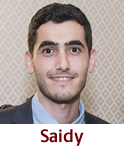 |
Inne Singgih and Zhiyu WangInne Singgih received her B.S. in Mathematics from University of Indonesia and her M.S. in Applied and Computational Mathematics from University of Minnesota at Duluth. Zhiyu Wang received his B.S. in Mathematics with an additional major in Computer Science from Carnegie Mellon University in Pittsburgh. Inne, from Indonesia, and Zhiyu, from China, are both doctoral candidates entering their fifth year in the Department of Mathematics. Inne and Zhiyu’s research interests lie in discrete mathematics, which pave the theoretical framework for modern complex networks and information systems. In the classroom, they aim to spread the joy of mathematical discovery to their students. Project Description: Having both taught Math 170 (Finite Mathematics) as instructors of record, Inne and Zhiyu believe there is tremendous potential in the course to transform students’ learning experience so that students can discover the inherent beauty of mathematics while having fun! Their joint project aims to gamify the learning of finite mathematics by engaging students with interactive, student-centered, and game-based yet cognitively demanding activities utilizing thought experiments and computer simulations. The product developed from the grant is a set of 5 to 10 game-based computer-assisted classroom activities on several core topics in Math 170, such as game theory, Markov systems, combinatorics, and probability. Through these activities, student will learn to collaboratively solve complex open-ended problems with deep mathematical implications. The effectiveness of these teaching resources will be assessed by a control/experimental study in two parallel MATH 170 sections in Fall 2019, where they plan to compare student learning outcomes under the current approach versus the game-based approach. The developed materials can be utilized in MATH 170 and other USC courses in computer science, economics, and statistics, as well as in many community outreach programs to promote STEM engagement. |
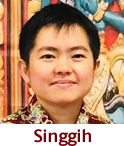 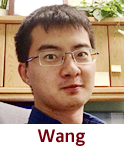 |


